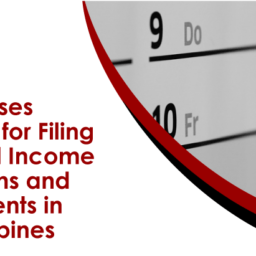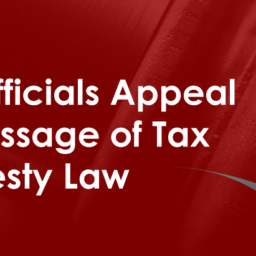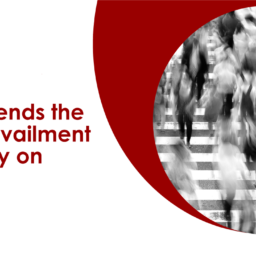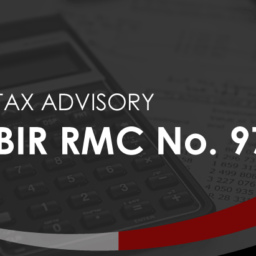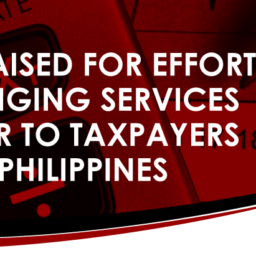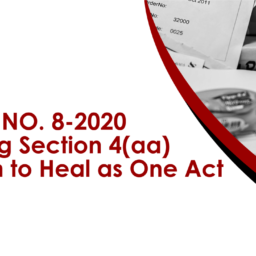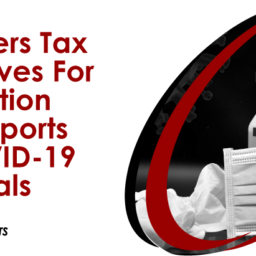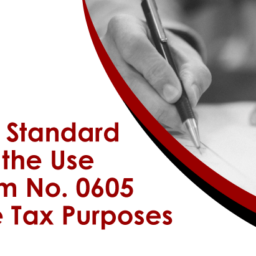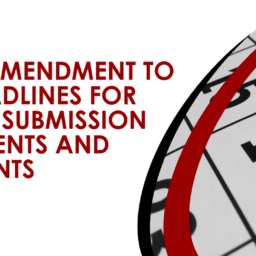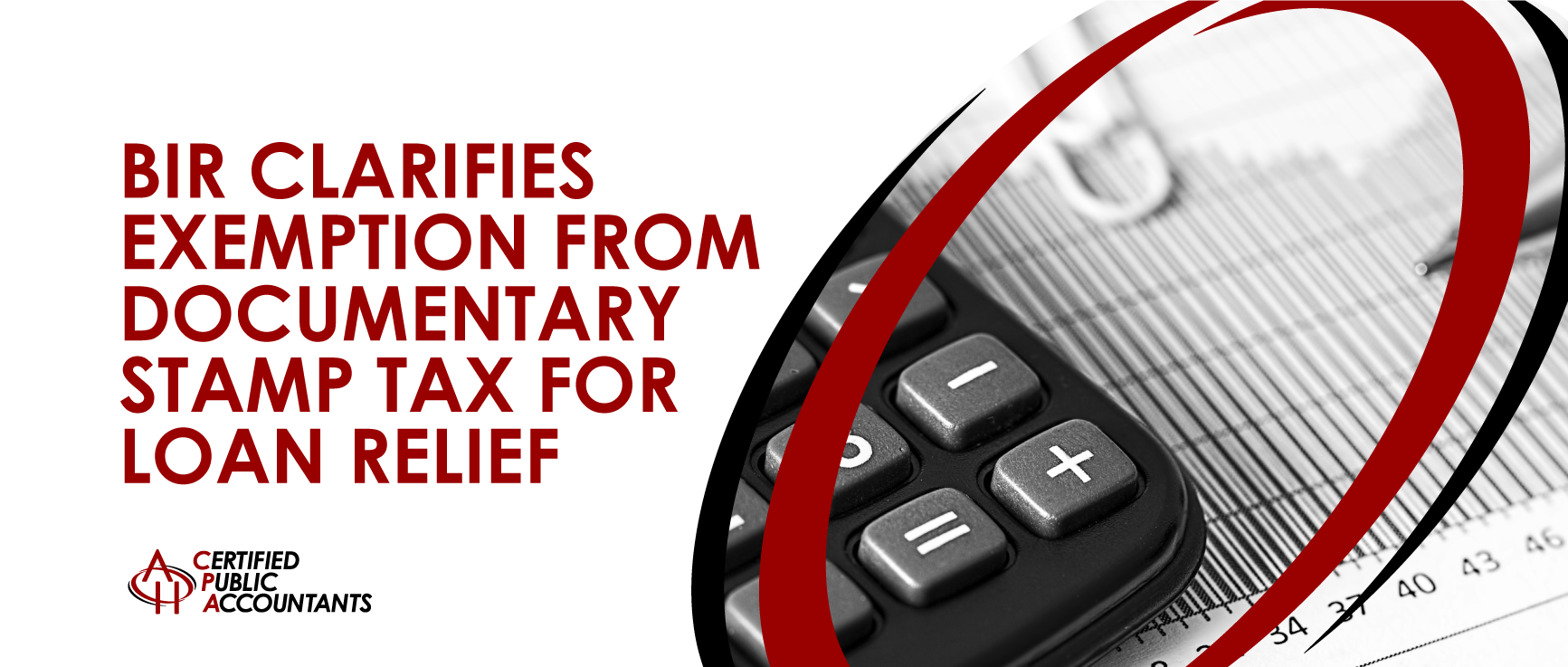
BIR Clarifies Exemption from Documentary Stamp Tax for Loan Relief
The Bureau of Internal Revenue (BIR) releases Revenue Memorandum Circular (RMC) No. 36-2020, pursuant to Revenue Regulations (RR) No. 8-2020 and RMC No. 35-2020, clarifying the exemption from Documentary Stamp Tax (DST) as a relief for payers of qualified loans.
RMC No. 36-2020 declares the suspension of imposition of charges and requires banks, financial institutions, financing and lending companies, public and private, including government agencies to implement a thirty (30)-day grace period for the payment of loans.
TAX TREATMENT
Additional DST shall not be imposed on credit extensions and restructuring, micro-lending, those obtained from pawnshops, and other extensions declared during the period of Enhanced Community Quarantine (ECQ). The same treatment applies to extensions of payments for pre-existing loans including but not limited to salary, personal, housing, and motor vehicle loans falling due within the ECQ period, including the extension of maturity date caused by the granted grace period for payments, regardless if the final payment dates initially fall within the ECQ.
ON CREDIT EXTENSIONS
Credit extensions refer to pre-existing loans that fall due during the ECQ period where interest is paid but the principal is:
- Converted into a new loan principal. Renewal or extensions of the loan’s mortgage, pledge, or deed of trust are exempted from DST.
- Renewed as a new loan principal. Those with pre-agreed roll-over arrangement and collateral documentation prior to the Coronavirus (COVID-19) outbreak remain to be subjected to DST.
ON CREDIT RESTRUCTURING
Credit restructuring refers to pre-existing loans that fall due during the ECQ period where:
- Principal and interests are unpaid and converted into a new loan principal with a new payment due date. Renewal or extensions of the loan’s mortgage, pledge or deed of trust are exempted from DST.
- Interest is paid while principal is partially paid and the remaining unpaid principal is transformed as a new loan principal. In this case, renewal or extensions of the loan’s mortgage, pledge or deed of trust are likewise exempted from DST.
Loan availments, top-up to existing loans, and new loan drawdowns during the ECQ, including its collateral documentation, are still subjected to DST.
REPORTORIAL REQUIREMENTS
Covered institutions, including the government agencies, shall submit the following requirements in hard and soft copies:
- Summary listing of all pre-existing loans
- Pledges
- Other instruments which were granted extension of payment
Summary listing shall be submitted to the following within sixty (60) days from the lifting of ECQ:
- Revenue District Office
- Large Taxpayers Service
- Large Taxpayers District Office*
*Must be based on the location where the taxpayer is registered
PENALTIES
Failure to submit the required summary listing on prescribed dates, covered institution shall pay additional DST that should have been imposed on the instrument during the ECQ including administrative penalties attached to such failure.




